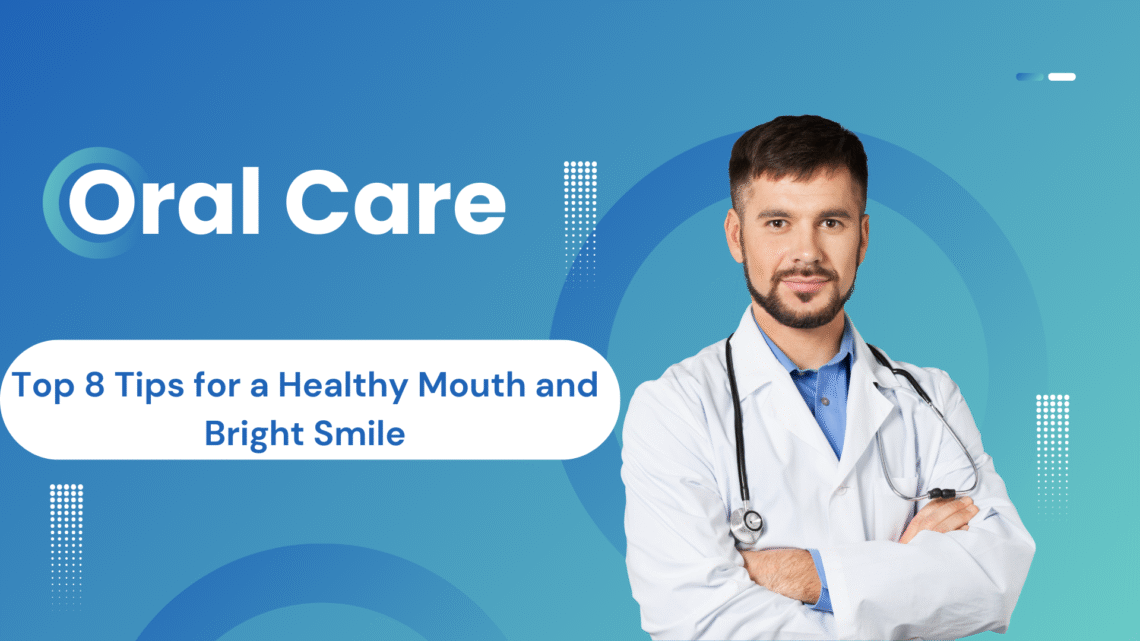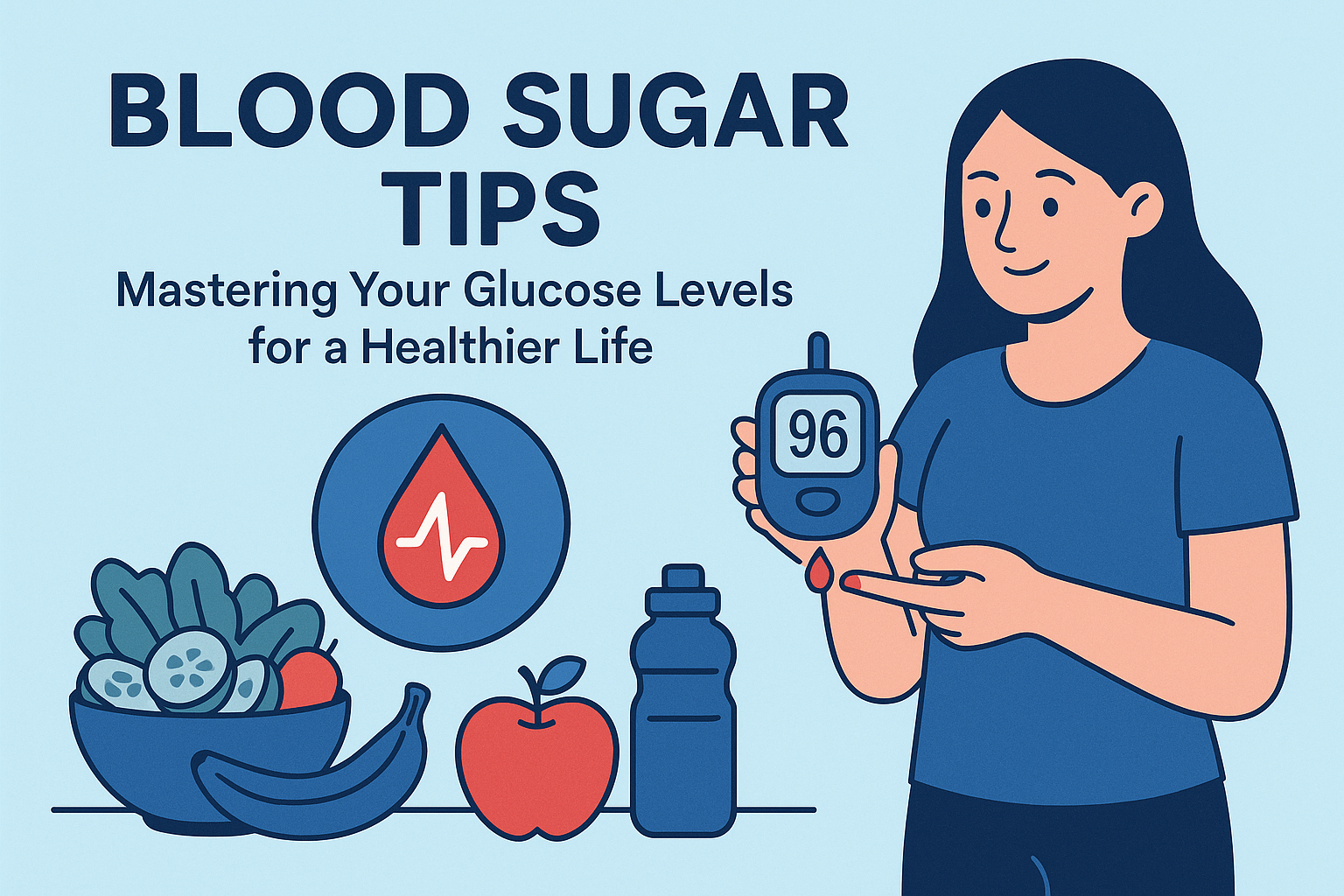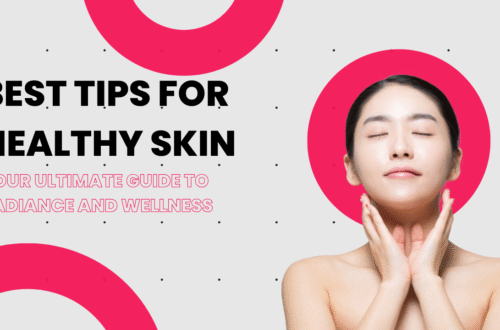Oral care is more than just brushing your teeth—it’s about building a daily habit that supports your overall health. A healthy mouth not only keeps your smile bright but also helps prevent serious health issues like gum disease, tooth loss, and even heart problems. Good oral hygiene improves your confidence, speech, and ability to enjoy your favorite foods without pain or discomfort.
Start with the basics: brush your teeth twice a day with fluoride toothpaste, floss once daily to remove plaque between teeth, and use mouthwash for extra freshness. Replace your toothbrush every three months and brush for at least two minutes each time. A balanced diet, limited sugary snacks, and drinking plenty of water also support a cleaner mouth.
It’s just as important to visit your dentist twice a year for checkups and cleanings. Dental professionals can catch problems early and help you maintain healthy teeth and gums.
Whether you’re starting fresh or improving your routine, the key is consistency. A few minutes each day can lead to long-term benefits. Your oral care efforts today will reward you with a brighter smile and better health for years to come.
Why Oral Care Matters

Oral care is the practice of keeping your teeth, gums, tongue, and the entire mouth clean and healthy. It is a vital part of maintaining overall health and well-being. By practicing good oral care daily, you can prevent many dental problems before they start and keep your smile looking its best.
Consistent oral care helps protect against common dental issues such as cavities, gum disease, tooth sensitivity, and bad breath. It also plays a major role in preventing more serious conditions like tooth loss and oral infections. A proper oral care routine supports not only your dental health but your immune system and heart health as well.
To achieve optimal results, oral care should include brushing twice daily, flossing once a day, using mouthwash, and visiting your dentist regularly. When combined with healthy lifestyle habits, these steps can ensure your mouth stays clean, fresh, and disease-free for years to come.
- Tooth decay
- Gum disease (gingivitis and periodontitis)
- Bad breath (halitosis)
- Tooth loss
- Oral infections
- Stained or discolored teeth
Neglecting your oral health can also lead to more serious health issues like heart disease, diabetes complications, respiratory infections, and even pregnancy-related problems. That’s why it’s essential to practice good oral hygiene every day.
Understanding the Basics of Oral Hygiene
Daily oral care includes simple routines like brushing, flossing, and rinsing. Here are the basics:
- Brushing: At least twice a day with fluoride toothpaste
- Flossing: Once a day to remove plaque and food between teeth
- Rinsing: With an antimicrobial or fluoride mouthwash
- Routine Dental Visits: Every six months for cleaning and check-ups
Additionally, a healthy diet and lifestyle choices play a key role in maintaining strong teeth and gums.
Top 8 Oral Care Tips for a Healthy Smile
1. Brush Properly and Regularly
Brushing your teeth is one of the most essential steps in any effective oral care routine. It serves as your first line of defense against harmful plaque buildup and the development of cavities. By brushing daily, you remove food particles and bacteria that can lead to tooth decay, gum disease, and bad breath.
However, frequency alone isn’t enough—technique matters just as much. Proper brushing involves using a soft-bristled toothbrush and fluoride toothpaste. Hold the brush at a 45-degree angle to your gums and move it gently in small, circular motions. Make sure to clean every surface: the front, back, and chewing sides of all teeth. Don’t forget to brush your tongue, as it can harbor bacteria that cause bad breath.
Mastering the right brushing technique is one of the simplest yet most powerful oral care habits you can develop. Done properly, it lays the foundation for lifelong dental health and a brighter smile.
- Use a soft-bristled toothbrush
- Brush at a 45-degree angle to the gums
- Move in gentle, circular motions
- Brush all surfaces: front, back, and chewing surfaces
- Don’t forget your tongue!
Brush for at least two minutes, twice a day, preferably in the morning and before bed.
2. Floss Every Day
Flossing is a vital part of any complete oral care routine. While brushing does a great job cleaning the surface of your teeth, it often misses the tight spaces between them. That’s where flossing comes in—it effectively removes plaque and trapped food particles from areas your toothbrush simply can’t reach.
Plaque buildup between the teeth can lead to cavities, gum inflammation, and even periodontal disease if left untreated. Flossing daily helps maintain healthier gums, prevents tartar buildup, and reduces your chances of experiencing bad breath. It’s one of the simplest oral care habits that can make a big difference in your long-term dental health.
To get the most out of flossing, use about 18 inches of dental floss, gently curve it around each tooth, and slide it under the gumline. If you find traditional floss challenging, try floss picks or a water flosser. Consistent flossing keeps your oral care routine truly effective.
- Use about 18 inches of floss
- Gently curve it around each tooth
- Slide it up and down under the gum line
If traditional floss is difficult, try floss picks or a water flosser for easier use.
3. Use Mouthwash Wisely
Mouthwash helps clean areas your toothbrush misses and can freshen breath.
- Choose a mouthwash with fluoride or antibacterial properties
- Avoid those with alcohol if you have sensitive gums
- Swish for 30 seconds after brushing and flossing
Mouthwash can reduce bacteria, strengthen enamel, and prevent gum disease.
4. Limit Sugary and Acidic Foods

Your diet plays a powerful role in maintaining strong teeth and healthy gums. What you eat daily can either support or harm your oral health. As part of your overall oral care plan, being mindful of your food choices is just as important as brushing or flossing.
Sugary and acidic foods can be particularly damaging to your teeth. Sugar feeds harmful bacteria in the mouth, leading to plaque buildup and eventually cavities. Meanwhile, acidic foods and beverages—like soda, citrus fruits, and vinegar—can weaken and erode your tooth enamel over time. This erosion makes your teeth more vulnerable to decay, discoloration, and sensitivity.
To support your oral care efforts, aim to eat a balanced diet rich in calcium, fiber, and water. Choose whole foods such as leafy greens, crunchy vegetables, nuts, and dairy products. These help strengthen teeth, neutralize acid, and naturally clean your mouth as you chew, promoting long-lasting oral health.
- Cut back on sweets, soda, and acidic fruits
- Drink plenty of water, especially after eating
- Chew sugar-free gum to stimulate saliva production
Saliva neutralizes acid and helps clean your mouth naturally.
5. Stay Hydrated
Staying hydrated is an often-overlooked but essential part of effective oral care. A dry mouth not only feels uncomfortable, but it can also contribute to several dental problems, including tooth decay, gum irritation, and persistent bad breath. That’s because saliva plays a key role in neutralizing acids, washing away food particles, and keeping harmful bacteria in check.
When your mouth lacks moisture, bacteria can multiply quickly, leading to plaque buildup, cavities, and even infections. Dry mouth can be caused by certain medications, dehydration, stress, or even sleeping with your mouth open. That’s why maintaining proper hydration is a vital piece of any daily oral care routine.
To prevent dry mouth and support a healthier mouth, drink plenty of water throughout the day—ideally 8–10 glasses. Avoid excessive caffeine and alcohol, as they can dry out the mouth. Proper hydration enhances the effectiveness of your oral care efforts and keeps your smile fresh and protected.
- Drink at least 8 glasses of water a day
- Avoid alcohol and caffeine which can dry out your mouth
- Use a humidifier if your home has dry air
Staying hydrated supports saliva production, which naturally protects your teeth and gums.
6. Don’t Skip Dental Visits
Regular dental check-ups are a critical part of a complete oral care routine. While daily brushing and flossing are essential, professional care ensures your teeth and gums stay in the best possible shape. Dentists have the tools and expertise to detect early signs of cavities, gum disease, or other oral issues that might not be visible or painful yet.
Skipping dental visits can allow small problems to become serious over time. During a check-up, your dentist performs a thorough cleaning to remove plaque and tartar that your toothbrush can’t reach. This deep cleaning helps prevent decay and maintains your gum health, both of which are key to successful long-term oral care.
Make it a habit to visit your dentist at least twice a year, or as recommended. These regular appointments are a preventive step in your oral care strategy, helping you avoid costly and painful dental treatments down the road.
- Visit your dentist every 6 months
- Get a professional cleaning to remove tartar
- Have X-rays and exams to catch hidden problems early
Professional care ensures your daily routine is working and addresses any issues before they become serious.
7. Avoid Tobacco Products

Tobacco use is one of the most harmful habits when it comes to oral care. Smoking or chewing tobacco introduces toxic substances into the mouth that can damage soft tissues, stain teeth, and contribute to the breakdown of gum health. These effects go beyond cosmetic concerns and can lead to serious, long-term dental and health complications.
One of the most severe consequences of tobacco use is an increased risk of oral cancer. In addition, tobacco weakens the immune system, making it harder for your gums to heal from infections, which contributes to chronic gum disease. Over time, this can result in tooth loss, bone deterioration, and even damage to your jaw.
For effective oral care, quitting tobacco is essential. It may be challenging, but the benefits are life-changing. Healthier gums, fresher breath, a whiter smile, and a reduced risk of serious illness are all part of a tobacco-free, healthier oral care journey.
- Quit smoking and avoid all tobacco products
- Seek support groups or cessation programs if needed
Your mouth will thank you with better breath, healthier gums, and a lower risk of serious disease.
8. Eat a Tooth-Friendly Diet

Tobacco use is one of the most harmful habits when it comes to oral care. Smoking or chewing tobacco introduces toxic substances into the mouth that can damage soft tissues, stain teeth, and contribute to the breakdown of gum health. These effects go beyond cosmetic concerns and can lead to serious, long-term dental and health complications.
One of the most severe consequences of tobacco use is an increased risk of oral cancer. In addition, tobacco weakens the immune system, making it harder for your gums to heal from infections, which contributes to chronic gum disease. Over time, this can result in tooth loss, bone deterioration, and even damage to your jaw.
For effective oral care, quitting tobacco is essential. It may be challenging, but the benefits are life-changing. Healthier gums, fresher breath, a whiter smile, and a reduced risk of serious illness are all part of a tobacco-free, healthier oral care journey.
- Include calcium-rich foods like dairy, leafy greens, and almonds
- Eat crunchy fruits and vegetables to naturally clean teeth
- Avoid sticky snacks and overly processed foods
A well-balanced diet provides the nutrients your gums and teeth need to stay strong and healthy.
Other Important Oral Care Practices
- Replace your toothbrush every 3-4 months or after illness
- Use a tongue scraper to reduce bacteria and bad breath
- Wear a mouthguard during sports or at night if you grind your teeth
- Teach children good habits early for lifelong oral health
Oral Care and Overall Health
Your mouth is often referred to as a mirror of your overall health. Practicing proper oral care isn’t just about keeping your teeth clean—it plays a critical role in protecting your entire body. The condition of your mouth can offer early signs of systemic health problems and signal when something’s wrong internally.
Infections, inflammation, and harmful bacteria in the mouth can travel through the bloodstream, increasing the risk of chronic conditions like heart disease, diabetes, respiratory infections, and even complications during pregnancy. Poor oral care can also contribute to weakened immunity and increased inflammation throughout the body.
By maintaining a consistent oral care routine—brushing, flossing, rinsing, eating well, and seeing your dentist regularly—you significantly reduce these health risks. A clean, healthy mouth not only gives you a brighter smile but also supports your overall well-being, proving that strong oral hygiene is one of the smartest habits you can adopt for lifelong health.
- Reduce the risk of heart disease and stroke
- Improve blood sugar control in diabetics
- Support healthy pregnancies
- Boost confidence and mental well-being
Conclusion: A Bright Smile Starts with Daily Habits
Oral care is more than just brushing your teeth—it’s a key part of your overall health and well-being. A clean, healthy mouth can prevent a wide range of issues, from cavities and gum disease to more serious conditions like heart problems and diabetes. Taking care of your teeth and gums helps you feel confident, speak clearly, and enjoy your favorite foods without discomfort or embarrassment. More importantly, good oral hygiene habits can save you time, money, and pain by avoiding the need for major dental treatments later in life.
The foundation of proper oral care is a consistent daily routine. That means brushing your teeth at least twice a day with fluoride toothpaste and using a soft-bristled toothbrush to avoid damaging your gums. Flossing once a day is equally important—it helps remove food particles and plaque from between your teeth where brushes can’t reach. Using mouthwash can add an extra layer of protection by killing bacteria and keeping your breath fresh.
In addition to these basics, the top 8 oral care tips can help you take your routine to the next level. These include brushing for a full two minutes, changing your toothbrush every three months, limiting sugary snacks and drinks, drinking plenty of water, avoiding tobacco products, eating a balanced diet, and protecting your teeth during physical activities. Don’t forget the importance of visiting your dentist at least twice a year for cleanings and checkups. Professional care can catch problems early, before they become serious or painful.
It’s also important to recognize that oral care isn’t just for adults—children, teens, and seniors all have unique needs when it comes to dental hygiene. Parents should help children develop good habits early, while older adults need to be aware of issues like dry mouth and tooth sensitivity. No matter your age, taking care of your oral health supports a better quality of life.
Start small if you’re building new habits. Even small changes, like brushing a little longer or adding flossing to your nightly routine, can make a big difference. The key is to stay consistent. Over time, these healthy habits become second nature—and the results speak for themselves. You’ll enjoy a cleaner mouth, fresher breath, and fewer visits to the dentist for fillings or gum treatments.
Above all, don’t skip those regular dental visits. Your dentist is your partner in maintaining oral health, and early detection of issues can prevent more serious problems. Your smile—and your entire body—will benefit from the care you put in today.
FAQ
1. How often should I brush my teeth?
You should brush your teeth at least twice a day, preferably in the morning and before bed. Brushing removes plaque and food particles that can lead to cavities and gum disease.
2. Do I really need to floss every day?
Yes, daily flossing is essential. It removes plaque and debris between teeth where toothbrushes can’t reach, helping prevent cavities and gum problems.
3. How often should I visit the dentist?
Most dentists recommend a visit every 6 months for a checkup and professional cleaning. Some people may need more frequent visits based on their dental health.
4. What causes bad breath?
Bad breath can be caused by poor oral hygiene, gum disease, dry mouth, or certain foods. Regular brushing, flossing, and tongue cleaning can help reduce it.
5. Are electric toothbrushes better than manual ones?
Both can be effective, but electric toothbrushes may remove more plaque and be easier to use, especially for people with limited hand movement.
6. Can poor oral health affect the rest of my body?
Yes. Oral health is linked to overall health—conditions like heart disease, diabetes, and infections can be related to untreated dental issues.
7. Is mouthwash necessary?
Mouthwash can be a helpful addition to brushing and flossing. It freshens breath and can reduce bacteria, but it should not replace brushing or flossing.
8. What’s the best age to start dental care for children?
You should start cleaning your baby’s mouth even before teeth come in. A child’s first dental visit should be around their first birthday or when the first tooth appears.





